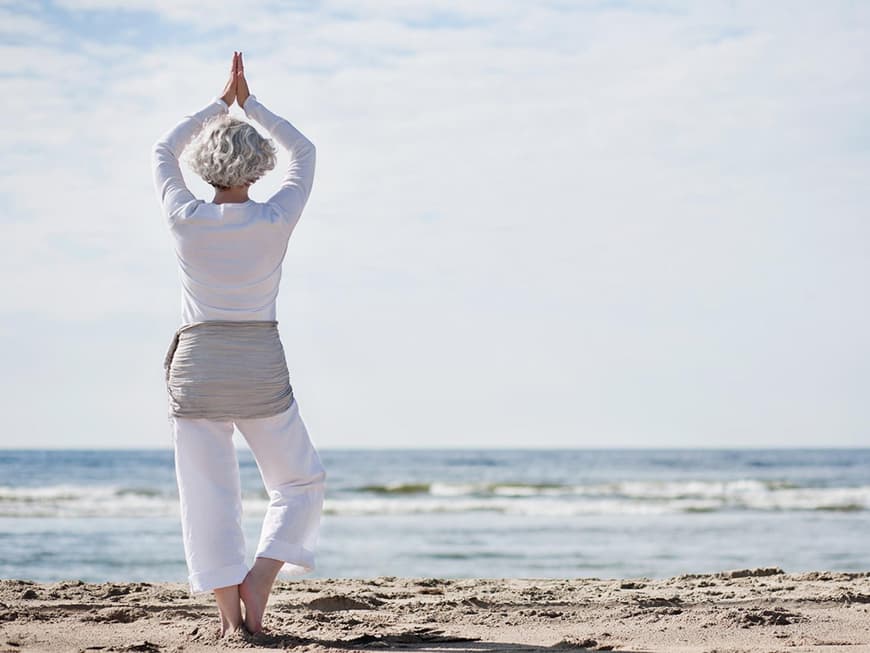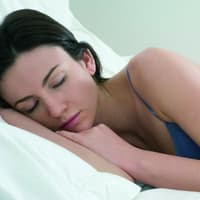
After the birth of my son, I was able to sleep for two, at most two and a half hours at a time for months - then the little guy was hungry again. Despite the maternal happiness and hormonal rush, this constant lack of sleep was a massive burden. I was irritable, had no energy for hobbies and friends, suffered from headaches and tension and in winter I picked up every infection.
One day I was so exhausted that I had a crying fit at lunch... Now the phase in which a hungry newborn has to be fed is manageable. However, people with chronic sleep problems - and that's around 15 percent of the population in western industrialized countries - suffer long-term social, health and even occupational consequences of their lack of sleep, from depression to type 2 diabetes to job loss.
A variety of methods for better sleep
Deep, good sleep in sufficient quantities is the basis for a happy, fulfilled life. But what can you do if sleep just won't come? When you wake up at four in the morning and can't fall back asleep until the alarm clock rings?
First of all, you should rule out physical causes and question your own life situation. What is currently or has been stressing me out for a long time - privately, professionally, financially? Therapies, spa stays and self-help programs can provide acute relief and also offer long-term solutions. However, one of the most helpful methods against problems falling asleep and staying asleep is yoga. Yoga is not only extremely effective in combating the main cause of insomnia: stress. Yoga also helps you to reorganize your life. The Indian teachings consist of more than just physical exercises. In addition to philosophical concepts and psychological knowledge, it also includes practical methods such as meditation, breathing exercises and dietary rules. So how can yoga specifically help with sleep problems?
Center your mind
Virtually every yoga class reduces stress and therefore contributes to better sleep. This is because physical exercise, especially in combination with deep breathing and focused concentration, has been proven to reduce stress hormones. Pre-bends are particularly effective against insomnia, as they have a calming effect on the nervous system. Yogis define forward bends as all exercises in which the torso and legs come closer together, such as the standing and seated forward bend or the head-knee pose. If you are restless, these exercises should be held for longer in the evening.
Meditation is also a vacation for the head, a reset button for the mind, valuable mental hygiene before going to bed. And it's not difficult at all: simply sit comfortably at the same time with your back upright - and stay seated. Even if your thoughts are racing and your feet are falling asleep. Just stay seated. If you want, concentrate on your breath and think "On - Off" or "Sat - Nam". Or find another mantra that helps you to get off the merry-go-round of your thoughts. Over time, you will notice that you can detach yourself more and more from your thoughts and begin to observe them from a distance. Then you will feel calmer - and a calm mind sleeps well.
Breathing techniques have a balancing effect
There is hardly a simpler method than breathing exercises to counteract physical and mental overexcitement. If you can't fall asleep, breathe deeply into your stomach. Follow the air you breathe through your nose into your windpipe up to your chest and then allow your stomach to soften and the air to flow into it. This deep abdominal breathing has a relaxing and grounding effect. It is also helpful to breathe out longer than you breathe in. This activates the parasympathetic nervous system and calms the nervous system.
If these simple breathing techniques are good for you, try alternate breathing, which involves breathing in and out alternately through the left and right nostril (you can learn this with videos on YogaEasy.de, for example).
Diet also influences sleep
In yoga, there are some simple dietary rules that have a great effect on stress and sleep disorders, such as the "rajas" principle. All foods that promote and stimulate activity are considered "rajas": Alcohol, coffee, very salty and spicy foods, onions and garlic. Foods containing industrial sugar and refined white flour should also be avoided. They cause a sudden rise in blood sugar levels and therefore have an activating effect in the short term, but cause exhaustion in the medium term. The fewer activating foods your evening meal contains, the better your sleep.
On the other hand, foods that are "sattwa", i.e. pure: fresh, wholesome organic foods, i.e. fruit and vegetables, wholegrain cereals, milk, honey and ghee, are particularly recommended. They provide the body with important nutrients and balance blood sugar levels.
Regularity trains the body
The "Sattwa" principle can also be applied to lifestyle. A "Sattwa" lifestyle is characterized above all by regularity and calming activities: Yoga, time in nature, periods of rest without radio, TV and smartphone. An evening ritual also helps you fall asleep: if your body learns that it is allowed to sleep at 10 p.m. every day after a light dinner and a relaxing walk, for example, the chances of a restful night increase.
At the end of each yoga class, the relaxing posture "Shavasana" is assumed. You lie on your back with your arms and legs slightly apart from your body, your neck long, your chin slightly pulled towards your chest and your toes pointing outwards. As you breathe deeply, concentrate on your body from top to bottom - from your scalp to each individual toe - and release tension. If you have trouble falling asleep again, adopt the Shavasana posture in bed and relax your restless body.
The following applies to all tips: give your body and mind time to let go of old, unfavorable patterns.
Our author Katharina Goßmann is a yogini and editor at YogaEasy.





